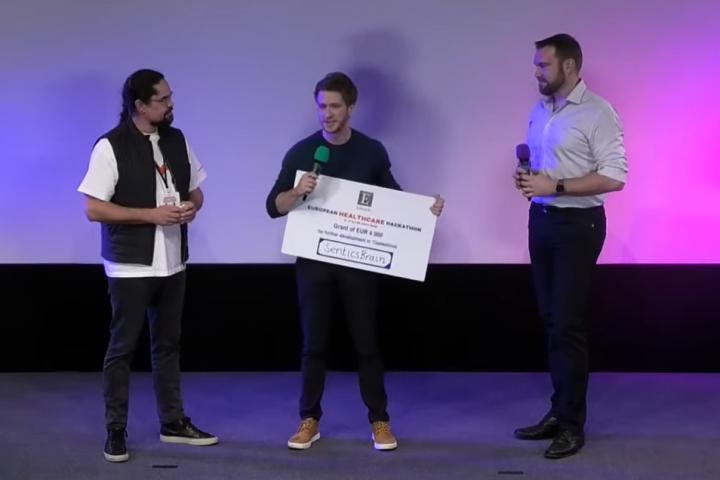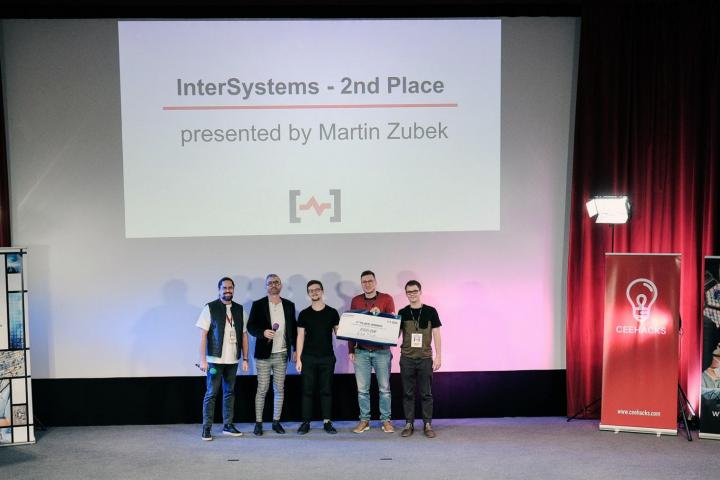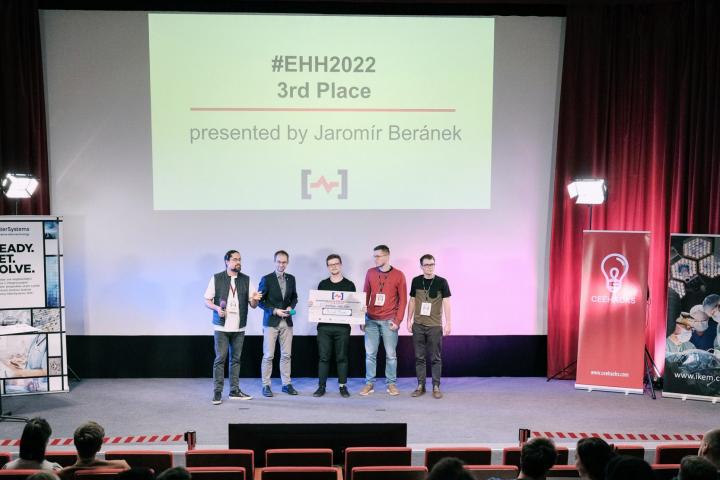Bc. Michal Šolc is a student of FIT CTU, who combines his studies with work for DataSentics, from which his colleagues from the SenticBrain team Jiří Stodůlka and Matěj Čermák were also members. They chose the Data analysis as a life saver and won the challenge. They focused on detecting anomalies in ECGs measured from Apple smartwatches. The main added value of the whole solution is in its personalization. Patients who have some heart problem have ECG readings different from the rest of the population and traditional algorithms to detect anomalies fail. Even what is the norm for such a patient is detected as an abnormality. The winning team's SenticsBrain model can adapt to this and looks at each patient individually. As a result, the proposed algorithm detects abnormalities in each patient's ECG measurements individually and notifies the doctor only about real abnormalities.
This category was announced by EHH partner Edward Lifesciences, which awarded the winning SenticsBrain team with a grant for future development of the solution. Edward Lifesciences is a global leader in artificial heart valves and hemodynamic monitoring. It works with physicians to develop innovative technologies in structural heart disease and critical care monitoring that enable them to save and improve lives. The team's winning solution, SenticsBrain, has the potential to monitor patients who receive an artificial heart valve right through the Apple smartwatch. With this solution, there would be no need to deploy expensive devices that are not affordable for everyone, and monitoring of a disproportionately larger number of patients would be possible
Ľuboš Repka is a student of FIT CTU, and he also combines his studies with work in the med-tech startup Mild Blue, from which his colleagues from the successful hackathon team Mild Blue Mgr. Tomáš Pavlín and Ing. Jan Skála. The team chose the Summon Help Now challenge, which was about developing an app to provide first aid as quickly as possible, and the InterSystems bonus challenge, which was about integrating Fast Healthcare Interoperability Resources (FHIR). With their app design, they won second place in this bonus challenge. The app brings together registered first responders who are committed to helping. The uniqueness of the solution lies in the involvement of paramedics trained by a first aid course and CPR training on the one hand, and on the other hand, the involvement of people without training as "runners" who are tasked with picking up an automated external defibrillator (AED) at the nearest dispensing point and delivering it to the scene of an accident to a fellow paramedic. Early use of an AED can greatly increase a patient's chance of survival. There are over 3,500 AED pick-up locations identified in the app. The app assesses the situation and intelligently assigns tasks to rescuers and runners based on their experience and distance from the patient and AED. The team also won third place overall at EHH with the app.
Within 48 hours at EHH, the Mild Blue team managed to create an iOS and Android app with enough functionality to be used by early adopters, who will then provide feedback for future development. The app does not forget to ensure the return of the AEDs to the dispensing point after the mission. The Mild Blue team is continuing to develop the app, communicating with the developers of the Záchranka app, doctors and paramedics and finding out what the legislative conditions are for an app of this type in the Czech Republic so that it can be fully operational and help save lives as soon as possible.


